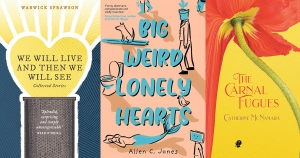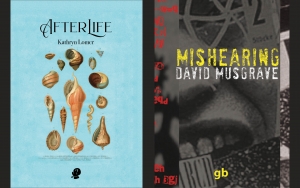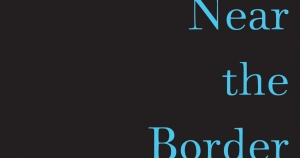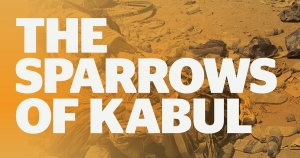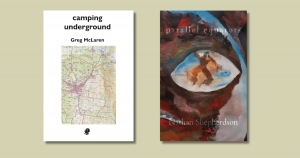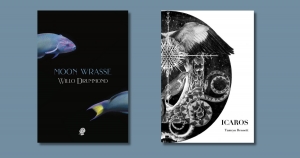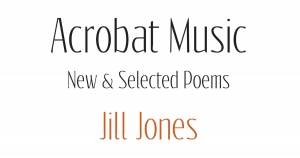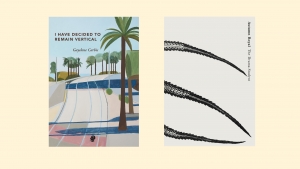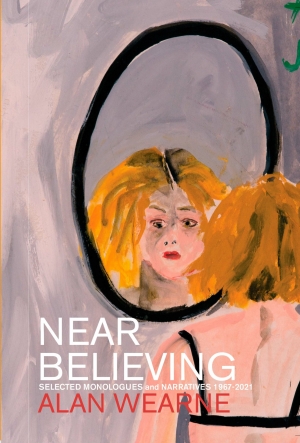Puncher & Wattmann
Over the years the popularity of short fiction has fluctuated greatly, for mysterious reasons. A senior publisher once told me that publishers loved short fiction collections but that the reason they rarely published them was due to booksellers’ reluctance to support them. When I put this to a major bookseller, they claimed it was the other way around.
... (read more)Anthony Lynch reviews ‘Mishearing’ by David Musgrave and ‘AfterLife’ by Kathryn Lomer
Mishearing, David Musgrave’s latest, most experimental poetry collection, arose from deliberately generated ‘mishearings’ of poems he read into Microsoft Word’s 2003 in-built speech recognition software. The software was by default ‘trained’ to a North American accent. Musgrave didn’t reprogram to an Australian accent, held the microphone at changing distances from his mouth, occasionally smothered it, and introduced ambient noise to heighten the software’s mistranscription. He read from the work of various poets, ranging from Dorothea Mackellar to Seamus Heaney, and an extract from James Joyce’s Finnegans Wake. Making multiple readings of the same poem, Musgrave grabbed selected line transcriptions to construct each ‘misheard’ poem.
... (read more)Geoff Page reviews 'Near the Border: New and selected poems' by Andrew Sant
Andrew Sant is a substantial yet somewhat elusive figure in contemporary Australian poetry. Born in London, he arrived in Melbourne with his parents at age twelve in 1962. Over the years, he has published at least eleven collections, co-founded the literary magazine Island, and been, for a time, a member of the Literature Board of the Australia Council. More recently, Sant has lived and worked in the United Kingdom, but he clearly retains links with Australia, particularly Tasmania, where he first became known as a poet.
... (read more)Diplomat and musician Fred Smith’s memoir of his time with the Department of Foreign Affairs and Trade (DFAT) at Kabul airport, and later in the United Arab Emirates (UAE), processing Afghan evacuees fleeing the Taliban’s return to power in August 2021, opens with a richly symbolic vignette. On his first visit to the North Gate, one of only three public entry points to Kabul airport, Smith is confronted by a nightmare vision of the country’s collapse. Amid a cacophony of screaming and gunfire, thousands of Afghans jostle, push, and kick one another, waving passports, holding babies aloft, as they fight their way towards a narrow gap in the razor wire entrance to the gate, guarded by a human wall of US Marines. Every thirty seconds or so somebody squeezes through the scrum to safety, emerging discomposed, bloodied, and bewildered.
... (read more)'Poems reawaken in us,’ writes James Longenbach, ‘the pleasure of the unintelligibility of the world.’ They do so via ‘mechanisms of self-resistance’: disjunctive strategies that work, for Longenbach, to ‘resist our intelligence almost successfully’. What ‘almost’ means here is, of course, a matter of taste – and style. Nonetheless, this Romantic mandate – that poems achieve clarity by integrating opacity – invites a question fundamental to poetics: how much resistance is too much, or not enough?
... (read more)Tamryn Bennett’s Icaros and Willo Drummond’s Moon Wrasse both use the natural as their central motif. Nature has of course always been a font of inspiration for poets. These two poets draw from that font in vastly different ways. Bennett’s title refers to a form of South American song that is chanted during rituals of cleansing and healing that involve plants. Drummond’s refers to a hermaphroditic fish, the moon wrasse, which acts as a symbol of transformation.
... (read more)Cassandra Atherton reviews 'Acrobat Music: New and selected poems' by Jill Jones
Jill Jones has given many interviews about her poetry where, inevitably, an interviewer asks her, ‘What is Australian poetry?’ In one of my favourite quips, Jones says, ‘Is it only Australians who worry about what is “Australian” poetry?’ Related issues are addressed in her pithy foreword to her second volume of new and selected poems, Acrobat Music. She states, ‘I realise, and others have said, my work doesn’t fit easily into a specified school, category or type of Australian poetry.’ This provides a fortifying manifesto to her oeuvre, reflecting Jones’s interest in ‘the possibilities of the poem … form, sound, connotation, address’.
... (read more)The relationship between artists and their sitters has long been a topic of fascination and enquiry – not least for artists themselves. The study of portraiture is often informed by investigations of this relationship as well as that with a third party: the viewer.
... (read more)Chris Arnold reviews 'I Have Decided to Remain Vertical' by Gaylene Carbis and 'The Drama Student' by Autumn Royal
There are striking parallels between I Have Decided to Remain Vertical by Gayelene Carbis and The Drama Student by Autumn Royal. Both are new collections from experienced Melbourne poets; both think through women’s places in social and material contexts; both display an intense interest in material things and material places; both engage with works of art beyond their own pages.
... (read more)Michael Farrell reviews 'Near Believing: Selected monologues and narratives 1967–2021' by Alan Wearne
The near-religious title of Alan Wearne’s new selection of poems, Near Believing, gives an impression of bathos and deprecation, while nevertheless undermining structures of belief, as represented in the book; at times this belief is explicitly Christian, but can also be seen more generally as belief in others, or in the suburban way of life. It is, then, while modest-seeming, highly ambitious – and, in another irony, further evokes the pathos, and hopelessness, of wanting to believe. In the title poem, which appears in the uncollected section, ‘Metropolitan Poems and other poems’, a ‘near-believer’ is defined by the poem’s priest speaker as ‘that kind of atheist I guess who prays at times’. This formula captures the ambiguity of the book’s many speakers and their addresses.
... (read more)
